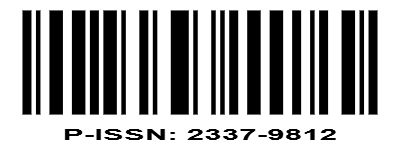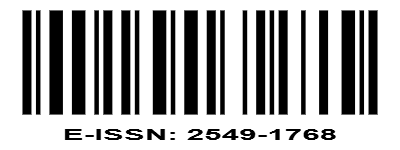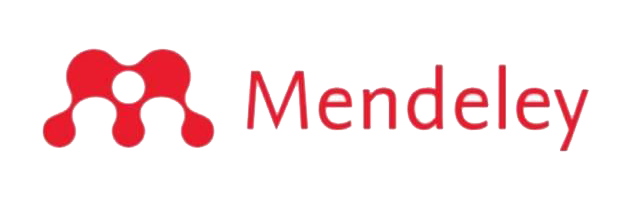Penerapan Model Pembelajaran Berbasis Proyek untuk Meningkatkan Keterampilan Proses Sains Siswa pada Konsep Pencemaran Lingkungan di SMP
DOI:
https://doi.org/10.22373/biotik.v4i2.1085Keywords:
Project-Based Learning, Science Process Skills, Pollution and Environmental Degradation’s ConceptAbstract
The purpose of this study is to improve science processing skills of students of SMPN 8 Banda Aceh in the concept of pollution and environmental degradation by using project-based learning. An experimental method with pretest-posttest control group design was used in this study. The population was all students of class VII SMPN 8 Banda Aceh which consisted of 5 classes with total number was 130 students. The samples were selected by using simple random sampling technique. There were 44 students from VII-1 acted as control group and class VII-2 acted as experimental group. The data were gathered by using pre-test and post-test. The research instruments used were essay questions to measure science processing skills, student’s work sheet, and work assessment’s rubrics based on science processing skills. The data then analyzed by calculating the post-test and pre-test gain and t-test to compare between the experimental class and control class. They were analyzed by using independent sample t-test. The results showed that there were improvement in the average of science processing skills of students in project-based learning’s class for about 51.86 (high) and conventional learning class for about 38.02 (medium). T-test results obtained as follows: tvalue was 2.680 and ttable was 2.021, so tvalue>ttable. The conclusion was the implementation of project-based learning in the concept of pollution and environmental degradation improved the science processing skills of student of SMPN 8 Banda Aceh.Downloads
References
Yuniastuti, E. 2013. Upaya Peningkatan Keterampilan Proses dan Hasil Belajar Biologi dengan Pendekatan Pembelajaran Jelajah Alam Sekitar pada Siswa Kelas VII SMP Kartika V-1 Balik Papan. Socioscientia. 5(1): 31-38.
Yokhebed, dkk. 2012. Pembelajaran Biologi Menggunakan Model Pembelajaran Masalah dengan Pendekatan Keterampilan Proses Sains untuk Meningkatkan Motivasi Belajar dan Hasil Belajar. Jurnal Inkuiri. 1(3): 183-194.
Guo, Sand Yanjung, Y. 2012. Project-based learning: an effective approach to link teacher professional development and students learning. Journal of Educational Technology Development and Exchange,5(2), 41-56.
Arikunto, S. 2010. Prosedur Penelitian: Suatu Pendekatan Praktik. Jakarta: Rineka Cipta.
Sudijono, A. 2010. Pengantar Statistik Pendidikan. Jakarta: Raja Grafindo Persada.
Karamustafaoglu, S. 2011. Improving the Science Process Skills Ability of Science Student Teachers Using I Diagrams. Eurasian Journal of Physics and Chemistry Education. 3(1): 26-38.
Dimyati dan Mudjiono. 2010. Belajar dan Pembelajaran. Jakarta: Rineka Cipta.
Winaryati, E. 2014. Evaluasi Supervisi Pembelajaran. Yogyakarta: Graha Ilmu.
Ergul, R., et al. 2011. The Effects of Inquiry-Based Science Teaching on ElementarySchool Students’ Science ProcessSkills and Science Attitudes. Bulgarian Journal of Science and Education Policy (BJSEP). 5(1): 48-68.
Siwa, I. B., dkk. 2013. Pengaruh Pembelajaran Berbasis Proyek dalam Pembelajaran Kimia Terhadap Keterampilan Proses Sains Ditinjau dari Gaya Kognitif Siswa. e-Journal Program Pascasarjana Universitas Pendidikan Ganesha. 3: 1-13.
Marlinda, N. L. P. M. 2012. Pengaruh Model Pembelajaran Berbasis Proyek Terhadap Kemampuan Berpikir Kreatif dan Kinerja Ilmiah Siswa. Tesis Program Pasca Sarjana Universitas Pendidikan Ganesha.
Trianto. 2010. Model Pembelajaran Terpadu. Jakarta: PT. Bumi Aksara.
Anonim. 2016. Klasifikasi Media Pembelajaran. (Online), http://belajarpsikologi.com/klasifikasi-media-pembelajaran/, diakses 30 Mei 2016.
Downloads
Published
Issue
Section
License
Authors who publish with BIOTIK: Jurnal Ilmiah Biologi Teknologi dan Kependidikan agree to the following terms:
- Authors retain copyright and grant the journal right of first publication with the work simultaneously licensed under a Creative Commons Attribution License that allows others to share the work with an acknowledgement of the work's authorship and initial publication in this journal.
- Authors are able to enter into separate, additional contractual arrangements for the non-exclusive distribution of the journal's published version of the work (e.g., post it to an institutional repository or publish it in a book), with an acknowledgement of its initial publication in this journal.
- Authors are permitted and encouraged to post their work online (e.g., in institutional repositories or on their website) prior to and during the submission process, as it can lead to productive exchanges, as well as earlier and greater citation of published work.











